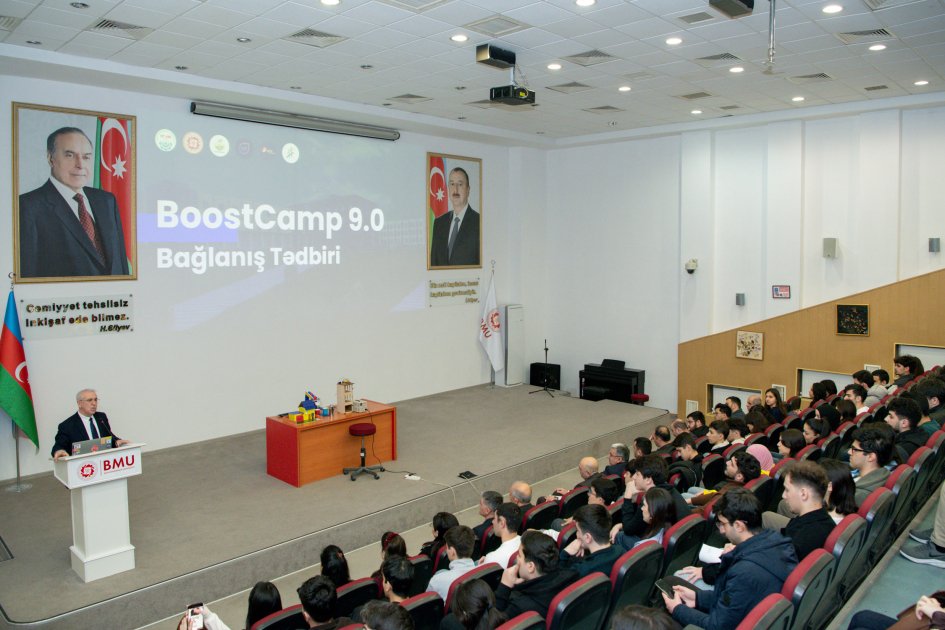The 2024 United Nations Climate Change Conference, or COP29, in Baku, Azerbaijan, will convene world leaders, activists, scientists, and policymakers to address the escalating intersection between health and climate change. Health and climate change are increasingly recognized as two sides of the same coin, a perspective that demands urgent action and strategic policies. Climate change is affecting air quality, increasing the spread of infectious diseases, and amplifying the frequency of natural disasters. This has profound implications for healthcare systems, especially in vulnerable regions. The looming question for COP29 is not only how to mitigate climate change but also how to address the health impacts borne by those on the frontline, particularly marginalized communities, women, and children. The conference represents a critical opportunity to assess whether global strategies will lean toward socialist principles prioritizing people and public welfare, or continue under capitalist frameworks that often prioritize competition and profit over environmental and human well-being.
George Simmel’s sociological perspectives provide a lens to examine the relationships between health, climate, and the societal structures that influence both. According to Simmel, societal elements are interconnected, with health and environmental well-being interwoven with economics, social organization, and political systems. Climate change, as a modern crisis, is not only a result of environmental degradation but a symptom of deeper social and economic patterns — capitalism and neoliberalism. These economic models prioritize relentless consumption and growth, often at the expense of the planet’s health and by extension, human health. This focus on continuous economic growth, a foundation of capitalist ideology, directly undermines sustainable practices and disproportionately impacts low-income communities. The profit-driven approach has exacerbated health inequalities, with climate-related health risks disproportionately affecting those who are least responsible for emissions.
The modern capitalist framework has accelerated climate change, framing it as both a challenge and an “opportunity” within market systems. In Marxist terms, climate change represents the commodification of a crisis — a threat to human survival transformed into a marketplace where solutions, resources, and resilience are bought and sold. Carbon credits, green technologies, and adaptation solutions have emerged as profitable sectors, yet they often fail to address the root causes of climate change, leaving poorer nations and vulnerable populations at risk. This capital-centric approach has led to what Marx might term as “commodity fetishism,” where the market obscures the social and ecological damage wrought by climate change, packaging it instead as a product to be managed or sold.
COP29 will witness competing narratives from stakeholders — corporations, governments, and activists. While governments may argue for gradual change, corporations continue promoting “green” products while evading stricter regulations on emissions. These narratives echo Antonio Gramsci’s notion of “expert hegemony,” where those in power use expertise and authority to dominate discourse, shaping public perception to favor existing power structures. As a result, climate policy is often framed through technocratic lenses, rather than grassroots approaches that prioritize health and community resilience. This hegemonic control of knowledge limits transformative changes needed to prioritize human and environmental health over profit.
Health risks arising from climate change are indisputably clear, with extreme weather events, vector-borne diseases, food insecurity, and water scarcity posing threats across the globe. These risks do not impact all countries or demographics equally. For instance, island nations like the Maldives are threatened with rising sea levels, while in sub-Saharan Africa, droughts contribute to malnutrition and the spread of infectious diseases. Comparatively, in the United States, wildfires have increasingly adverse effects on respiratory health, especially in low-income, densely populated areas. Climate impacts are not only uneven geographically but also across gender and socioeconomic lines. Women and mothers, particularly in marginalized communities, bear a disproportionate share of climate-related burdens. Women are often primary caregivers and rely on natural resources for sustenance, making them particularly vulnerable to resource scarcity and health threats from climate change. COP29 must address these inequities, advocating for health-centered policies that reflect the lived realities of diverse communities.
Climate justice movement, highlighted in COP28 and expected to be pivotal at COP29, seeks to rectify these disparities. It emphasizes that those who contribute least to climate change suffer the most from its consequences. This movement aligns with subaltern approaches that advocate for the inclusion of marginalized voices, challenging top-down narratives and focusing on community-driven solutions. Such approaches emphasize the need for “just transitions” that protect vulnerable populations as economies move away from fossil fuels. Climate justice is rooted in the idea of shared but differentiated responsibility, urging wealthier nations to acknowledge their historical contributions to climate change and take the lead in funding global adaptation and mitigation efforts. This principle becomes particularly relevant when discussing the Sustainable Development Goals (SDGs), which urge reductions in consumption patterns and call for a shift towards sustainable development practices. Sustainable health initiatives within climate policy are not only about reducing emissions but also about restructuring economies to reduce resource exploitation and promote resilience.
Upcoming COP29 conference is at a critical juncture, representing an opportunity to choose between a continuation of capitalist, profit-driven approaches or a shift toward socialist principles that place people and health at the forefront. A socialist approach could allow for climate strategies that focus on collective welfare, community health, and environmental stewardship, while challenging the capitalist emphasis on profit, competition, and consumption. The capitalist model’s inclination towards “unlimited destruction of nature,” as evidenced by extractive industries and the unsustainable use of resources, has led to ecological and health crises that threaten long-term human survival. To truly address climate change and health, a balance must be struck — one that allows for economic growth without undermining environmental and human health.
Bringing health to the forefront at COP29 would mean prioritizing public access to healthcare, strengthening healthcare infrastructure in vulnerable regions, and addressing environmental determinants of health. To move forward, COP29 must embrace a vision where health and climate justice are interlinked priorities, ensuring that policies are inclusive, just, and equitable.

Professor Dr. Shakeel Ahmed is a Chief Executive of Global Strategic Institute for Sustainable Development.














